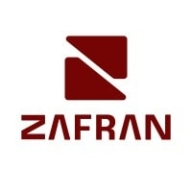


Tenable Vulnerability Management and Microsoft Defender for Cloud compete in the domain of cybersecurity solutions focused on vulnerability management and threat protection. Microsoft Defender for Cloud appears to have an upper hand due to its strong threat intelligence, regulatory compliance features, and integration within the Azure ecosystem.
Features: Tenable Vulnerability Management emphasizes comprehensive visibility across traditional and cloud environments, robust vulnerability scanning, and seamless integrations, particularly for enterprise organizations. It offers traditional and container scanning supported by real-time scanning through agents. Microsoft Defender for Cloud highlights threat intelligence and regulatory compliance, along with a holistic security view and advanced threat protection. It integrates well within the Azure ecosystem, managing multi-cloud environments with real-time alerts.
Room for Improvement: Tenable Vulnerability Management users note the need for improvement in customization of dashboards, reporting capabilities, and the clarity of licensing options, alongside better integration with other tools and customer support. Microsoft Defender for Cloud could enhance UI consistency, improve integration with third-party tools, and provide more user-friendly documentation, with noted areas for improvement in pricing clarity and configuration granularity.
Ease of Deployment and Customer Service: Tenable Vulnerability Management offers flexible deployment options ranging from on-premises to hybrid clouds, with customer support described as generally positive but having slower response times. Microsoft Defender for Cloud primarily deploys in public and hybrid clouds with tight integration within the Microsoft ecosystem. Its support is strong, with efficient responses and comprehensive guidance, though training and better integration can be enhanced.
Pricing and ROI: Tenable Vulnerability Management is viewed as costly, with recommendations for a more flexible pricing model, yet it offers good ROI by managing vulnerabilities effectively. Microsoft Defender for Cloud offers competitive pricing within the Microsoft suite, with flexibility in module selection contributing to favorable ROI, despite occasional views of high pricing.



Zafran Security integrates with existing security tools to identify and mitigate vulnerabilities effectively, proving that most critical vulnerabilities are not exploitable, optimizing threat management.
Zafran Security introduces an innovative operating model for managing security threats and vulnerabilities. By leveraging the threat exposure management platform, it pinpoints and prioritizes exploitable vulnerabilities, reducing risk through immediate remediation. This platform enhances your hybrid cloud security by normalizing vulnerability signals and integrating specific IT context data, such as CVE runtime presence and internet asset reachability, into its analysis. No longer reliant on patch windows, Zafran Security allows you to manage risks actively.
What are the key features of Zafran Security?
What benefits can users expect from Zafran Security?
In industries where security is paramount, such as finance and healthcare, Zafran Security provides invaluable protection by ensuring that only exploitable vulnerabilities are addressed. It allows entities to maintain robust security measures while allocating resources efficiently, fitting seamlessly into existing security strategies.
Microsoft Defender for Cloud is a comprehensive security solution that provides advanced threat protection for cloud workloads. It offers real-time visibility into the security posture of cloud environments, enabling organizations to quickly identify and respond to potential threats. With its advanced machine learning capabilities, Microsoft Defender for Cloud can detect and block sophisticated attacks, including zero-day exploits and fileless malware.
The solution also provides automated remediation capabilities, allowing security teams to quickly and easily respond to security incidents. With Microsoft Defender for Cloud, organizations can ensure the security and compliance of their cloud workloads, while reducing the burden on their security teams.
Managed in the cloud and powered by Tenable Nessus, Tenable Vulnerability Management (formerly Tenable.io) provides the industry's most comprehensive vulnerability coverage with real-time continuous assessment of your organization. Built-in prioritization, threat intelligence and real-time insight help you understand your exposures and proactively prioritize remediations.
We monitor all Vulnerability Management reviews to prevent fraudulent reviews and keep review quality high. We do not post reviews by company employees or direct competitors. We validate each review for authenticity via cross-reference with LinkedIn, and personal follow-up with the reviewer when necessary.